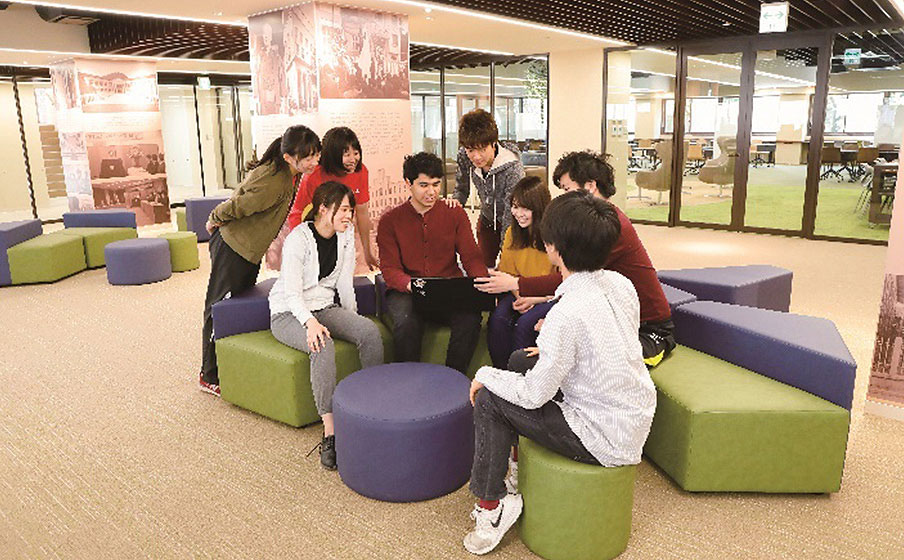Learning in Small-Group Classes







- Home
- Learning in Small-Group Classes
Courses with Small-Group Classes as the Cornerstone of University Learning
One of the characteristics of learning at Ritsumeikan University is the courses it provides with small-group classes. Courses with small-group classes, comprising of around 30 students per class, are courses assigned to students each semester throughout their four years (or six years for students in the College of Pharmaceutical Sciences, Department of Pharmaceutical Sciences). Arranged according to the characteristics of the college or department, these courses generally have the following characteristics.
- ・ Students gain the ability to learn independently through group work and discussions in small groups.
- ・ Courses with small-group classes are also a place for the first-year students to make friends. At Ritsumeikan University, emphasis is placed on mutual learning (peer support). Small-group classes are also an important way for students to connect with each other in order to make a smooth transition from high school learning to university-level learning. “Oritor” and “Enter” are peer support systems in which upperclassmen support first-year students in making friends in first-year small group classes, and as they start their student life (see section on Peer Support).
- ・ Seminars and graduation research conducted in student’s 3rd and 4th years are often arranged using the smallgroup classes format, and they are regarded as a representative example of the learning community as well as the culmination of learning at the university.
Courses with small-group classes are important subjects that are a cornerstone of learning for each college and department. Course names and year levels during which courses are allocated varies depending on the college. You can find out about courses with small-group classes in your college/department via the Academic Handbook for your college. Access the Academic Handbook from your college’s website on manaba+R and find the courses with smallgroup classes for your college and their characteristics.
The TA and ES Systems — Learning Support Provided by Undergraduate and Graduate Students
For many courses, including those with small-group classes for first-year students, senior students are assigned to support your learning as TAs (teaching assistants that are graduate students) and ESs (educational supporters that are undergraduate upperclassmen). TAs and ESs provide detailed support that cannot be covered by faculty members alone. Depending on the class, TAs and ESs may provide a variety of advice to junior students based on their own experiences, which is an important opportunity for (peer) learning beyond the student’s own year level.


Links
→ Courses → College of 〇〇 Students Page → Course Registration → Academic Handbook for the College of 〇〇
- ※ Please note that the wording may differ from college to college.

